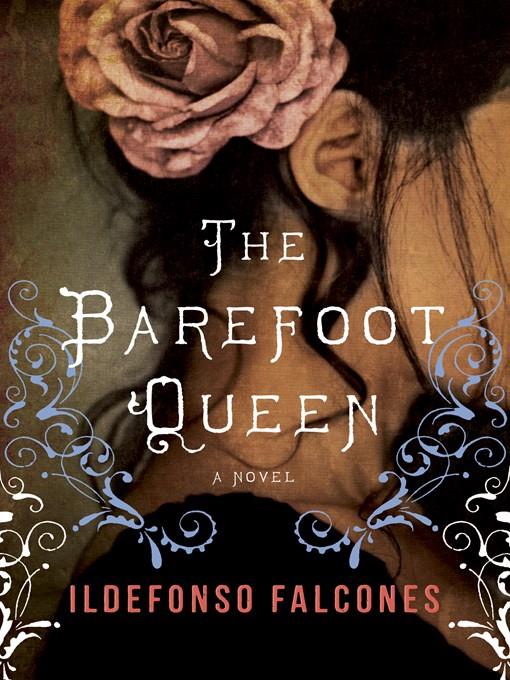
The Barefoot Queen
A Novel
کتاب های مرتبط
- اطلاعات
- نقد و بررسی
- دیدگاه کاربران
نقد و بررسی

September 29, 2014
Falcones follows The Cathedral of the Sea with a ponderous novel about two female friends, both strong and yet disenfranchised in 1748 Spain. Former slave Caridad lands penniless in Seville after her owner dies on the voyage from Cuba. Milagros Carmona is the beloved granddaughter of Melchor Vega, the gypsy who gives Caridad a temporary home that soon becomes permanent. Fearful Caridad bonds with Milagros and accustoms herself to gypsy life, finding work with the smuggled tobacco they sell, while Milagros struggles to accept the marriage her parents arrange. Milagros's fiancé is killed after she urges him to take revenge on a payo, or nongypsy, who has victimized Caridad, and the clan punishes Milagros for causing his death. Then Spain's king outlaws gypsy culture, scattering the family and the community. After the decree is gradually lifted, Milagros's singing and dancing talents make her famous, but the man she loves proves to be a cruelly abusive husband. When Melchor vows vengeance against Milagros's abuser, both Melchor's life and Caridad's the deep love for him are put at risk. This story lacks the focus and momentum that made Falcones's last novel so successful. He powerfully evokes the time and place, but the narrative is overly broad and slow-moving.

October 15, 2014
Another historical epic from best-selling Falcones (The Hand of Fatima, 2011, etc.), this one set among Spain's fiery gypsies.The busy tale begins with the arrival in Cadiz of Caridad, an African slave from Cuba liberated but stranded by the shipboard death of her master. She's rescued after weeks of abuse at the hands of various brutal white men by Melchor, patriarch of the Vega clan of gypsies. Most of the action involves this odd couple, plus Melchor's daughter, Ana, and granddaughter, Milagros. They are separated by the mass roundup of gypsies in 1749: Ana, like thousands of others, is jailed and endures years of torment; from prison, she disowns Milagros for marrying Pedro Garcia, whose family has an ancient blood feud with the Vegas. There's no question about who's in the right, as Pedro proves to be a rotten husband who, when Milagros' talents as a dancer and singer take them to Madrid, starts by cheating on her and ends by pimping her out by force to aristocrats, then branding her a whore. Meanwhile, feisty Melchor and annoyingly passive Caridad have various adventures while the author treats us to large doses of historical background poorly incorporated into his eventful fiction. The translator can perhaps be blamed for such anachronistic dialogue as, "No way!" and "Yeah, yeah," but not for the whipsawing from one storyline to another that prevents readers from connecting with any of the characters until far too late. Only Falcones' vivid portrait of gypsy culture-a proud, amoral and unabashedly sensual challenge to puritanical Spanish Catholicism-maintains interest as the plot twists on and on. The narrative does eventually arrive at a climactic confrontation and a moving affirmation of gypsy solidarity and tenacity, but it's an awfully long slog to get there. Very slow to gain momentum, but colorful background and a slam-bang finale almost make up for it.
COPYRIGHT(2014) Kirkus Reviews, ALL RIGHTS RESERVED.

October 15, 2014
This massive work of historical fiction is Spanish author Falcones's second book to be translated into English (after Cathedral of the Sea). Caridad, a Cuban slave who attained freedom when her master died on the voyage to Spain, is taken in by Melchor Vega, a gypsy who lives a precarious existence in Seville in the 1740s. Melchor's granddaughter, Milagros, pities the passive Caridad and takes it upon herself to teach her the gypsy ways. The story follows Caridad and the Vega family as their lives take a bad turn after a royal mandate declares all gypsies to be outlaws. Caridad's knowledge of tobacco, which is highly prized, and Milagros's beautiful voice lead them down different but equally treacherous paths. Throughout the course of the story, mishaps constantly befall the main characters, lending a tone of hopelessness and near despair. VERDICT Falcones delivers a strong sense of place and history, but repetitive phrases and anachronisms (a character is said to be "off doing his thing") as well as graphic depictions of rape, torture, and violence weigh the story down. While some historical fiction fans may enjoy this tale of 18th-century Spain, it is not recommended for most readers. [See Prepub Alert, 6/2/14.]--Terry Lucas, Rogers Memorial Lib., Southampton, NY
Copyright 2014 Library Journal, LLC Used with permission.

October 15, 2014
In Falcones' newest historical epic, set mostly in Andalusia in the mid-eighteenth century, expressions of cultural pride, artistic exuberance, and unlikely love are enclosed within a dark, research-heavy tale of persecution and blood vengeance. After her former master dies while en route from Havana, Caridad arrives alone in Spain, clearly unused to her new freedom. Her ebony skin quickly attracts unwelcome attention, but she is rescued by Melchor Vega, a Gypsy who draws her into his world of tobacco smuggling in Seville's Triana district, where she befriends his feisty teenage granddaughter, Milagros. She sings with the same pain, Melchor notes, recognizing Caridad as a fellow outcast. The detonation of long-standing family rivalries and a royal mandate demanding the Gypsies' arrest lead to long separations and heartache as they struggle for their liberty. Caridad and Milagros are robust characters, both resilient and sensual yet equally powerless in their male-dominated country. Exciting in places, slow and meandering in others, this lengthy novel demands commitment, but its multifaceted look at Gypsy life and morality is vivid and memorable.(Reprinted with permission of Booklist, copyright 2014, American Library Association.)

























دیدگاه کاربران